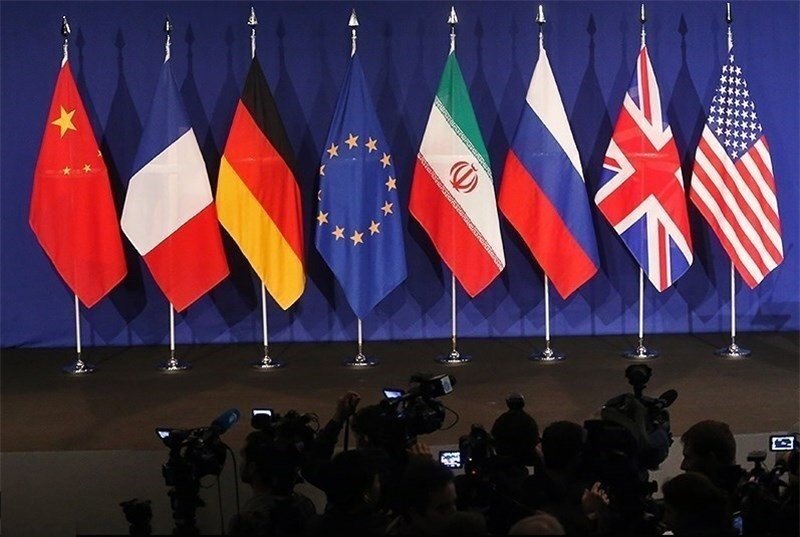“Maximum pressure” stigmatized the idea of engagement with the West: Foreign Affairs

TEHRAN - In early February, Iran promised that once the United States completely lifted economic sanctions, Iran would return to full compliance with the 2015 nuclear deal, but just two weeks later, Iran declared that Iran might enrich uranium up to 60 percent purity if the country needed it, according to Foreign Affairs magazine.
The American magazine argued Iran isn’t just playing hardball and its toughened stance genuinely reflects the mood of a country that no longer sees the West as a likely economic partner, saying, “The reimposition of U.S. sanctions under President Donald Trump discredited for many ordinary Iranians the usefulness of diplomacy, even as it hardened a distribution of wealth. Washington may have turned the screws on Iran’s economy in the hope of weakening the hand of its political elite—but instead, Trump’s ‘maximum pressure’ campaign led to a consolidation of economic and political power in Iran that militates against compromise.”
The magazine acknowledged that during the first two years of maximum pressure, and even before the outbreak of the novel coronavirus, U.S. sanctions led to the contraction of Iran’s economy by almost 12 percent, its per capita real income by 14 percent, and the country’s oil exports by 80 percent and said, “The national currency lost almost one-fourth of its value, leading the minimum wage value to drop from $260 to almost $70 per month.”
“Economic sanctions will remain an integral part of U.S. Iran policy no matter who is president and whether Tehran pursues engagement or not.”It explained Trump’s maximum pressure campaign altered the social class structure of the country by moving a significant portion of the middle class to the poverty level and wrote, “The result has been to stigmatize the idea of engagement with the West as a solution to Iran’s economic woes.”
Foreign Affairs admitted Trump’s sanctions have been almost twice as devastating as those of his predecessor, President Barack Obama, and said, “But because Trump’s sanctions came without any clear incentive or objective, they did not produce domestic political pressure for compromise or negotiation with the United States. During Obama’s sanctions, the presidential candidate Hassan Rouhani promoted the idea that Iran’s economic and social problems were tied to the country’s isolation and argued that diplomacy and engagement were the key to overcoming these problems. Rouhani won the presidency in 2013 on that argument. No such argument seems plausible today.”
Pointing to public expectations about the likely benefits of an agreement, Foreign Affairs wrote, “During the lifetime of the 2015 nuclear agreement, Iran’s economic growth rate rose by 17 percent, generating 3.5 million jobs, mostly for small businesses in the service sector in large cities. The poverty rate in Tehran and large cities dropped—in the case of Tehran, to below 20 percent after the deal’s implementation. Again judging from the households survey, 45 percent of Iran’s population in 2017 could be considered economically middle class—neither poor nor at risk of poverty.”
Meanwhile, it said the Rouhani administration lost critical ground in failing to distribute the benefits of the nuclear deal equally among the different segments of the society and underlined, “In small towns and villages, unemployment and poverty remained at the same level as before. For poor families in these areas, the lifting of U.S. sanctions between 2015 and 2018 neither brought new jobs nor put food on their tables. The rural poverty rate has remained above 40 percent since 2013, with no marked change following the nuclear agreement. A flood of new sanctions in 2018 then vastly increased the number of poor Iranians, from 22 million to 32 million, and shrank the size of Iran’s middle class from 45 percent to 30 percent by March 2020. The poverty rate is expected to rise to 45–48 percent in 2021.”
The American magazine acknowledged the Trump administration didn’t succeed in producing results beneficial to U.S. interests and emphasized,
“The state now runs a large public budget deficit and has accumulated debt to private contractors that has bankrupted many of them. Those private contractors have accounted for nearly 25 percent of job creation in Iran in recent decades; they were also one of the main sources of funding for reform-minded politicians over the last 25 years. Now, most of the top private contractors are bankrupt.”
Foreign Affairs wrote the Iranian political elites, particularly reformists, have to answer some difficult questions from a public that has come to see never-ending sanctions as a defining component of U.S. policy toward Iran and added, “Can proponents of engagement guarantee that resolving concerns about Iran’s nuclear and missile programs, for instance, won’t just lead the Americans to fasten onto a new issue in order to bring sanctions back? A country at continuous risk of U.S. sanctions is unlikely to attract substantial foreign investment. So does it really make sense to advocate engagement with the West—especially given that the International Monetary Fund has projected that Iran will return to 3.2 percent growth in 2021, even under current constraints?”
It argued those in the U.S. who oppose removing economic sanctions in exchange for Iranian compliance unintentionally reinforce the Iranian principlists’ narrative that Trump’s approach was the rule rather than the exception in terms of U.S. policy and stressed, “According to this understanding, economic sanctions will remain an integral part of U.S. Iran policy no matter who is president and whether Tehran pursues engagement or not. In fact, to curb Iran’s missile program and its regional influence, the United States will seek to build even more economic leverage, through more sanctions. Opponents of engagement in Tehran brandish this prospect to prove that the United States is not living up to its commitments—rather, it is playing an endless game. The truth is that circumstances have changed since 2015 for both countries. Trump’s self-defeating policy has made compromise less appealing.”
EE/PA
Leave a Comment